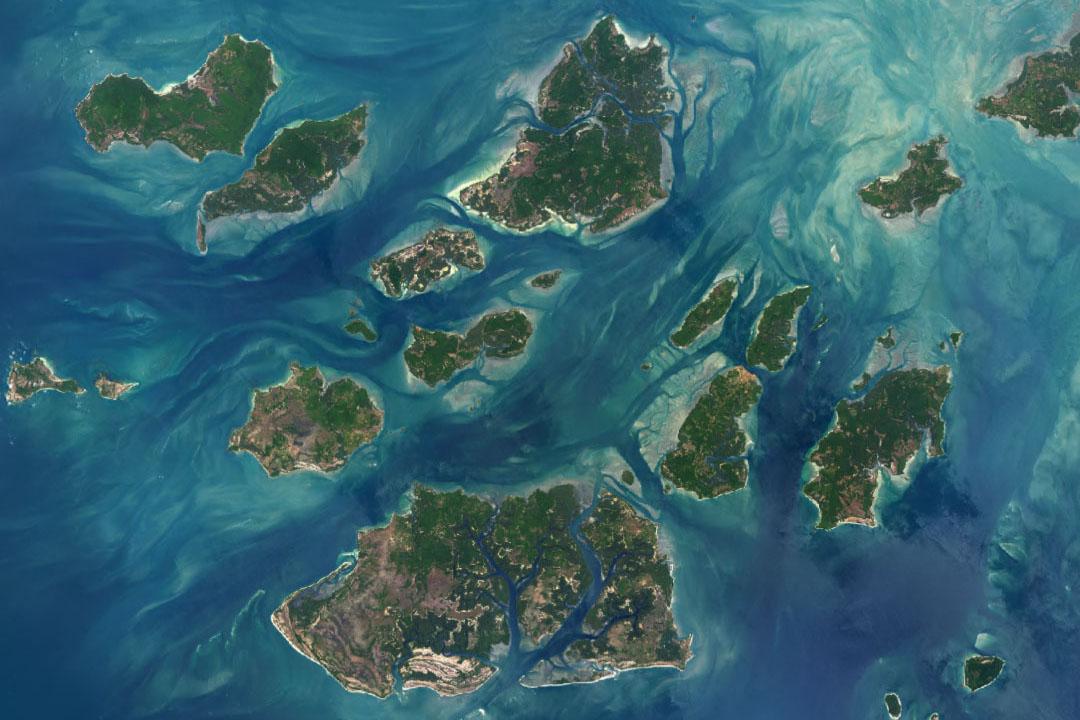At the beginning of 2025, researchers José Alves and Camilo Carneiro, both from CESAM/DBIO, were contacted by IBAP (Institute for Biodiversity and Protected Areas of Guinea-Bissau) to support the ongoing nomination of the Bijagós Archipelago for inclusion on the UNESCO World Heritage List.
Sites designated as World Heritage must possess Outstanding Universal Value, meaning they hold fundamental cultural and/or natural significance and meet strict selection criteria. The Bijagós Archipelago is one of the most important wintering grounds in Africa for migratory shorebirds along the East Atlantic Flyway and holds numerous other cultural and natural values that deserve protection for future generations. Following a field visit in late 2024, IBAP received a series of questions from IUCN, on behalf of the evaluation panel, regarding species distribution and the use of different zones within the proposed area.
José Alves, researcher at CESAM/DBIO, explains that the contribution involved two complementary aspects: “on one hand, through the production and dissemination, over the past years, of various scientific publications on macrobenthos, shorebirds and their interactions with local communities; on the other, through a rapid response to IUCN requests following the technical evaluation mission, which included compiling and analysing unpublished data on the spatial use of the archipelago by migratory shorebirds equipped with tracking devices such as GPS tags.”
In less than a week, the scientific team, which also includes Camilo Carneiro, provided the necessary information, showing that between 80% and 95% of the locations from tracked birds occurred within the proposed core protection zone. This evidence proved decisive for IUCN’s recommendation to inscribe the Bijagós Archipelago on the World Heritage List — a milestone that, in José Alves’ words, represents “an important achievement for biodiversity conservation in West Africa. This international recognition guarantees a high level of legal protection for this coastal ecosystem, which is particularly important for shorebirds that are experiencing more severe population declines in this part of the flyway than in other regions.”
With this designation, the Bijagós will become the fifth site along the East Atlantic Flyway to join the list of UNESCO sites with Outstanding Universal Value. Inclusion in this international network will reinforce conservation efforts for migratory shorebirds, contributing to reversing population decline trends across multiple species.
